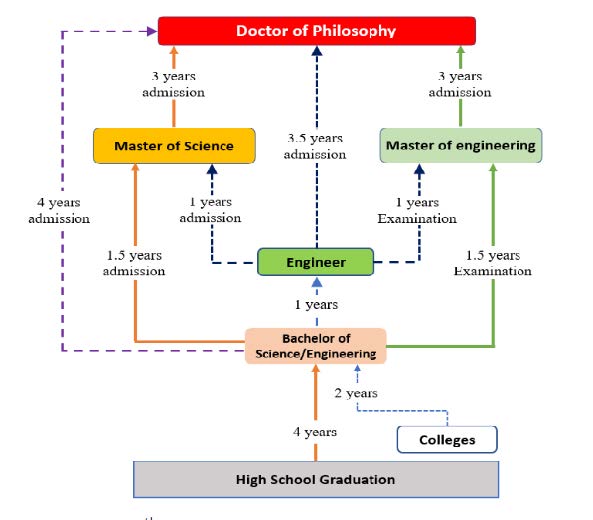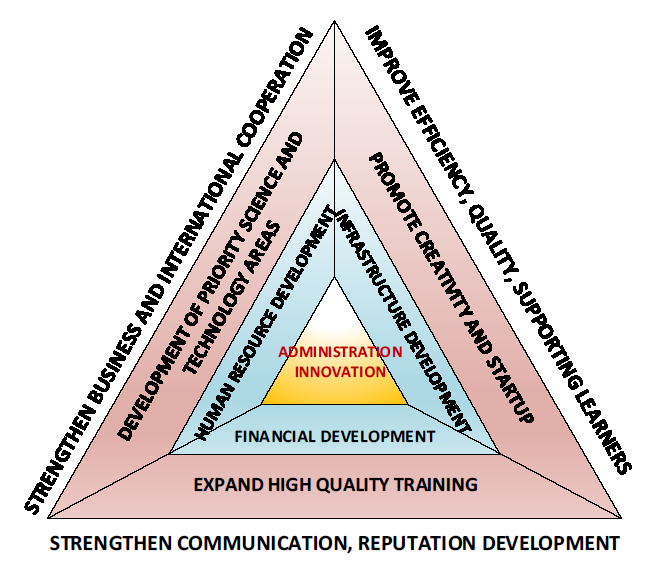
Before 2017, the university’s training model is 5 + 2 + 3 (5 years of engineer training, 2 years of master and 3 years of doctorate). Since 2017, the university’s training programs have been renewed under the model of 4 + 1/1 + 3 (4 years of bachelor’s degree, 1 year of engineer or 1 year of master and 3 years of doctorate) in an integrated and flexible way, in line with the context of international integration, in order to facilitate students’ learning experience and contribute to generating high-quality human resources for the society.
Training model of HUST
Over 68 years of establishment and development, HUST is a leading prestigious university in training and scientific research and technology in Vietnam. In recent years, given a new era with many opportunities and challenges, the university’s leaders have studied and devised the development strategy for the university in the period of 2017 – 2025
Development Strategy of HUST for period of 2017-2025
The strategy defines clear development goals and directions, which set out the key tasks and solutions. The main task in the period of 2017-2025 is to restructure the organization and build an advanced management model; to promote capacity and improve quality of the staff, to build a strong financial system, to construct modern infrastructure and facilities, to develop high-quality internationalized training programs, develop some key science and technology fields, to build and develop an innovative startup ecosystem, to strengthen business cooperation and international cooperation, to strengthen communication and branding and to improve the quality and effectiveness of student support activities.
To ensure education quality, the School of Mechanical Engineering has also established a Quality Assurance Working Group under Decision No: 243/QĐ-SME The working group consists of 21 people with the following missions:
- Develop and issue annual plans for the school’s education quality assurance and accrediting activities;
- Create and submit legal documents and guidelines for internal quality assurance activities to the School Administrator;
- Preside over and cooperate with Departments and Centers under the School to develop administrative procedures and collect and preserve quality assurance-related information;
- Implement self-evaluation of the school’s quality assurance in accordance with the Quality Management Office’s recommendations;
- Report the outcomes of the school’s quality assurance operations to the school administrator;
- Consult, supervise, and inspect the execution of quality assurance procedures in all school units;
- Participate in the external quality evaluation under the university plan;

 Tiếng Việt
Tiếng Việt

